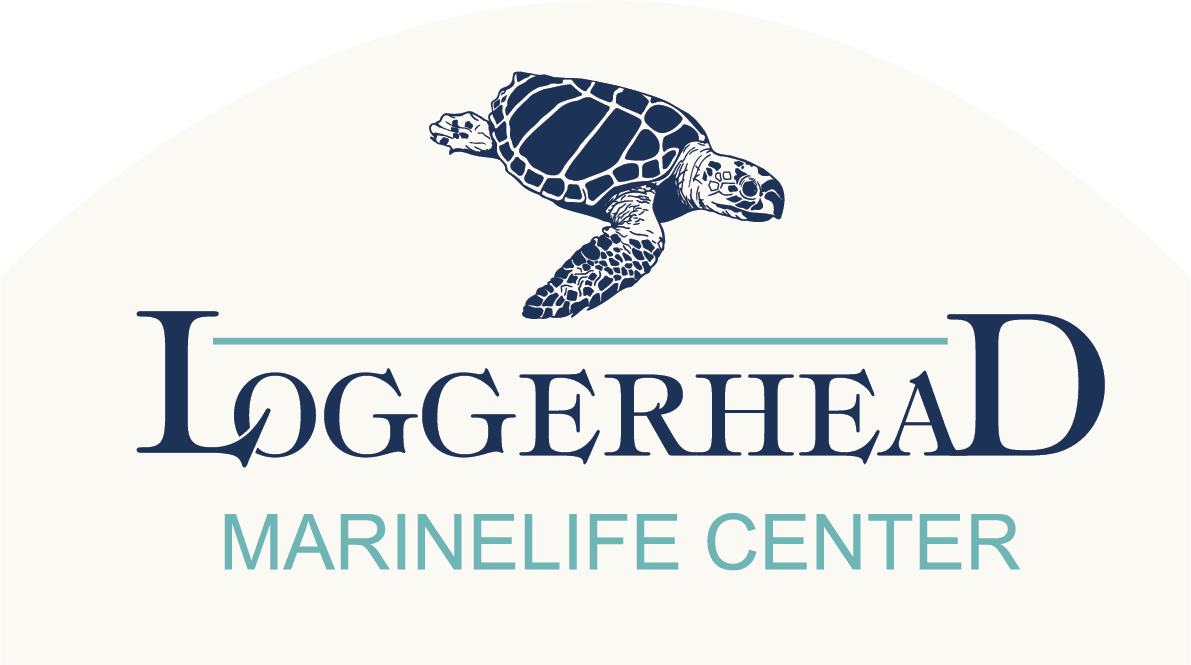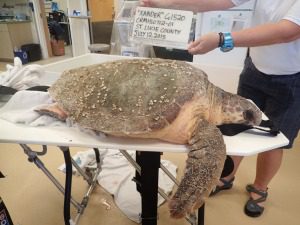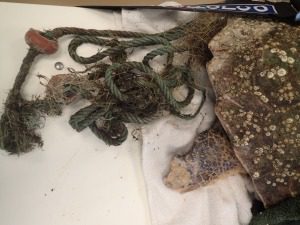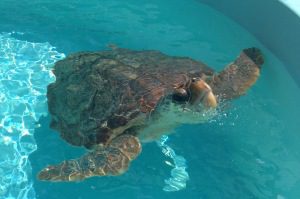Living in a coastal town means that fishing is a big part of life. Walk down the length of the Juno Beach Pier any day of the week and you will spot dozens of fishermen, locals and visitors alike, enjoying the South Florida sun with their lines dangling into the water. Sounds like a carefree way to spend a day, right? Unfortunately, the abundance of fishing line in the water can spell trouble for some of the other residents of our coastal paradise. Local sea turtles,like Xander, can often find themselves tangled.
Xander was recovered at the St. Lucie Power Plant intake canal by Inwater Research Group biologists and brought to LMC on July 12, 2015. He suffered fishing line entanglement issues so severe that the physical impact of the line’s constriction can be seen on his back flippers.
The fishing line that was tangled around Xander’s flippers was removed and the wounds are starting to heal, but Xander’s case points to a much larger problem. Fishing line (specifically monofilament) is a huge threat to sea turtles and other creatures in our ocean. According to the Florida Fish and Wildlife Conservation Commission (FWC), “Every day, improperly discarded monofilament fishing line causes devastating problems for marine life and the environment. Marine mammals, sea turtles, fish and birds become injured from entanglements, or might ingest the line, often dying as a result.”
The good news is that there are simple ways to prevent a fun day of fishing from turning into a dangerous situation for our flippered friends. The main strategy? Recycle fishing line instead of leaving it around. The FWC even has a program to help out, called the Monofilament Recovery & Recycling Program. To learn more about it, visit their website.
Of course, monofilament hazards will not disappear from our waters overnight, and if you frequent our beaches, there is a chance that you may spot a sea turtle suffering from entanglement. You can be the hero of that scenario in a simple way: don’t intervene directly, but call the FWC immediately using the contact information below.
Call: 1-888-404-FWCC (3922) – Cellular phone *FWC or #FWC
For the land-bound residents of our beach-side town, fishing has always been a lifestyle and likely always will be as it’s passed down through the generations. So feel free to grab your hat and fishing pole, but just make sure that you’re being kind to our ocean-dwelling locals, too.
Written by: Hanna Rubin, Marketing Intern



